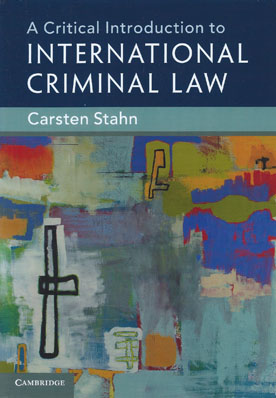
International Criminal Law has witnessed a rapid rise after the end of the Cold War. The UN refers to the birth of a new 'age of accountability', but certain historical objections, such as selectivity or victor's justice, have never fully gone away, and many of the justice dimensions of international criminal law remain unexplored.
Various critiques have emerged in socio-legal scholarship or globalization discourse, revealing that there is a stark discrepancy between reality and expectation.
Linking discussion of legal theories, case-law and practice to scholarship and opinion, A Critical Introduction to International Criminal Law explores these critiques through five main themes at the heart of contemporary dilemmas: